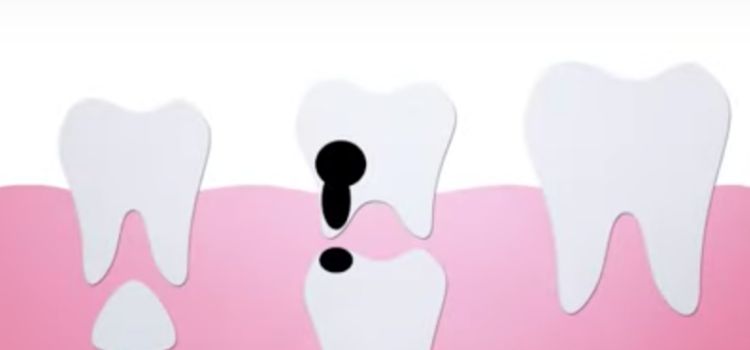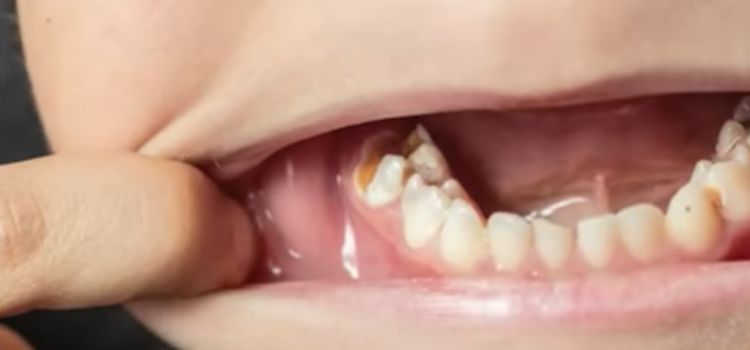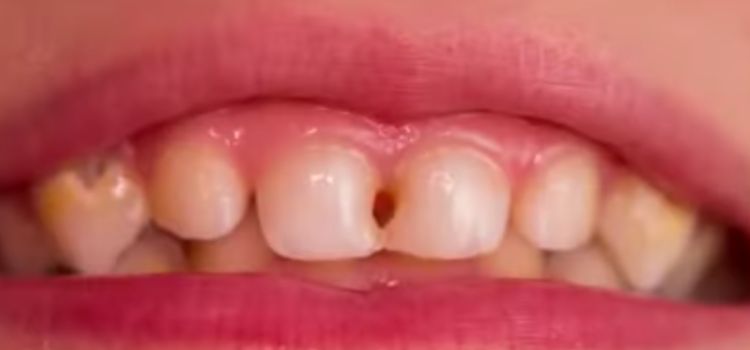As an Amazon Associate I earn from qualifying purchases.
There are frequently a lot of questions when it comes to the oral health of our young children. The problem of baby teeth cavities is one that parents frequently worry about. Do they require immediate attention or can they wait to be treated?

We will go into great detail on Do Baby Teeth Cavities Need to be Filled in this blog article, giving you the knowledge you require to make an informed choice regarding the dental health of your child. Therefore, read on to learn the facts and professional advice that will point you in the proper direction whether you’re inquisitive about whether it’s necessary to fill infant tooth cavities or you’re just looking for understanding on the subject.
Definition: What are baby teeth cavities?
Baby teeth cavities are tiny holes or regions of damage on a child’s primary teeth, sometimes referred to as dental caries or decay. The enamel, the outer protective coating of the teeth, is eroded when oral bacteria in the mouth create acid. Poor dental hygiene, frequent use of sweet foods and beverages, and a lack of fluoride exposure are all risk factors for developing cavities in baby teeth.
Baby teeth cavities can cause discomfort, illness, difficulties swallowing, and even interfere with the growth of permanent teeth if they are not corrected. Baby tooth cavities can be prevented and treated with the help of routine dental checkups, good oral hygiene, and a balanced diet.
Importance: Why do baby teeth cavities need to be filled?
Because baby teeth cavities are so important to a child’s overall oral health, they must be filled. Even though baby teeth are only there for a short time, they guide the emergence and alignment of permanent teeth by acting as their substitutes.
Untreated cavities can result in pain, illness, and even harm to the developing permanent teeth below. Early dental decay can also lead to long-term issues like speech issues, poor nutrition, and low self-esteem. Parents can support their children’s healthy tooth growth and foster long-term oral hygiene practices by promptly treating baby tooth cavities.
Understanding Baby Teeth Cavities:
Causes of baby teeth cavities
Baby teeth cavities can be brought on by a number of things. Poor oral hygiene practices are one of the main causes. When parents or other caregivers neglect to regularly brush the baby’s teeth and gums, bacteria can flourish and release acids that erode the tooth enamel. Additionally, regular consumption of sugary foods and beverages can help prevent cavities from forming.
These meals’ sugar content gives the bacteria in the mouth a food supply, which causes them to produce toxic acids. Additionally, the incidence of cavities in infant teeth can rise due to the passage of bacteria from the mother or other primary caregiver to the kid through saliva. To avoid cavities, it’s critical to maintain proper oral hygiene and consume fewer sugary meals and beverages.
Signs and symptoms
Baby tooth cavities, also known as pediatric dental caries, can show a variety of symptoms. Early detection of these symptoms is crucial to avoid future issues. Tooth sensitivity, pain or discomfort when eating or drinking, obvious discoloration or black spots on the teeth, and foul breath are common indicators of baby teeth cavities. These cavities can cause more serious problems, like infection or harm to the permanent teeth, if they are not treated. Therefore, it is essential to treat and fill infant tooth cavities as soon as possible to ensure that children’s oral health is at its best.
Factors to Consider:
The severity of the cavity
Dental caries in primary teeth sometimes referred to as baby tooth cavities, can range in severity. To avoid future issues, it’s crucial to treat these cavities right away. But are cavities in baby teeth need to be filled? The appropriate course of action is heavily influenced by the extent of the cavity.
In some situations, if the cavity is minor and not uncomfortable, a “watch and wait” strategy may be used. However, filling the cavity becomes vital to restore dental health and stop the spread of infection if it is large or hurting. It is highly advised to consult a pediatric dentist to decide the best course of action for your child’s dental care.
Age of the child
Whether or not baby teeth cavities need to be filled depends heavily on the child’s age. Baby teeth, sometimes referred to as primary teeth, usually begin to erupt around the age of six months and last, until the child is three years old. It is crucial for parents to maintain good oral hygiene and routine dental checkups throughout this time to stop tooth decay and cavities. It is typically advised to have a cavity in a baby tooth filled in order to stop future harm and preserve the child’s overall oral health.

Impact on speech and eating habits
A child’s speech and feeding habits may be significantly impacted by cavities in their baby teeth. Children may experience pain and discomfort as cavities form, which can make it challenging for them to properly chew and swallow their food. Poor eating habits may result from this, such as avoiding particular foods that require more effort to consume.
Additionally, a child’s speech development may be impacted by cavities. Children who have cavities may find it difficult to appropriately enunciate some sounds or words due to the pain and suffering they experience. Therefore, to avoid any long-term effects on speech and eating habits, infant teeth cavities must be addressed and filled as necessary.
Arguments for Filling Baby Teeth Cavities:
Preventing further decay
When it comes to cavities in baby teeth, prevention is key. Many parents ask whether cavities in children’s teeth need to be treated. Early intervention is crucial to stop these cavities from getting worse and causing further harm.
Dentists can eliminate decay and repair the tooth’s structure and function by filling cavities in infant teeth. This keeps the baby teeth healthy until they naturally fall out and helps stop future deterioration. In order to establish the best course of action for stopping additional deterioration, it is advised that you see a dentist if you are worried about your child’s infant teeth having cavities.
Maintaining proper oral hygiene habits from an early age
Children’s entire oral health depends on maintaining good oral hygiene practices from a young age. Parents frequently wonder whether cavities in children’s teeth need to be fixed. Early childhood caries, commonly referred to as baby tooth decay, can cause pain, illness, and difficulty speaking and eating. To stop further harm to the teeth and any issues, it’s critical to treat these cavities as soon as possible. Parents can help prevent and treat cavities in their children’s baby teeth by teaching them appropriate oral hygiene habits, such as frequent brushing, flossing, and dental checkups.
Arguments against Filling Baby Teeth Cavities:
Baby teeth will eventually fall out
Around six months old, the infant’s temporary teeth begin to erupt. They last until the child is roughly three years old. But it’s important to keep in mind that baby teeth are not designed to endure a lifetime. These teeth will gradually become looser as a child ages and finally fall out to make room for their permanent teeth to sprout. This procedure develops the jaw naturally and makes room for the adult teeth to erupt. So, even though it may be difficult to let go of baby teeth. It’s an essential step in a child’s dental development that leads to a healthy and attractive smile.
Potential risks and discomfort during treatment
When treating cavities in baby teeth that need to be filled, there are potential hazards and discomfort that could occur. It is crucial to comprehend the possible repercussions of this dental operation. Although the procedure tries to replace the damaged tooth, there are some potential dangers.
A few patients may feel sensitive or uncomfortable during or after the filling treatment. Complications including infections or allergic responses to the materials utilized are also a risk. To reduce any potential hazards or discomfort. It is crucial to speak with a trained dentist who can assess the condition and offer the necessary advice.
Professional Opinion and Recommendations:
Dentists’ recommendations on filling baby teeth cavities
Filling cavities in baby teeth is strongly advised by dentists to preserve oral health and avoid subsequent issues. Baby teeth are essential for healthy speech development, chewing, and positioning of adult teeth. Baby teeth can be preserved more effectively and with a lower risk of infection and pain when cavities are filled. Dentists use tooth-colored fillings because they are reliable and attractive. It is crucial for parents to arrange for their kids’ routine dental examinations and to abide by the advice of their dentist regarding maintaining good oral hygiene.
Alternative Approaches and Prevention:
Non-invasive treatments for baby teeth cavities
Parents and dental experts alike are getting more and more interested in non-invasive treatments for caries in infant teeth. With no need for drilling or extraction, these therapies attempt to treat tooth decay in a gentle and conservative manner. Applying silver diamine fluoride (SDF), a liquid drug that is simple to apply to the damaged tooth is one of these therapy options.
SDF prevents further harm by halting the progression of tooth decay. Dental sealants, which are slender protective coatings placed on the chewing surfaces of the baby teeth. They are another minimally invasive therapeutic option. Cavities are less likely as a result of these sealants, which act as a barrier against bacteria and food particles. Parents may now safeguard their child’s health thanks to these non-invasive therapy choices.

Conclusion
In conclusion, baby cavities in teeth can have a long-term impact on a babies dental health. It is critical to recognize and treat them. Even though baby teeth are only around for a short time, their health can affect how permanent teeth erupt and how well people practice general dental hygiene. Filling cavities in infant teeth helps stop additional decay, ease pain, and improve chewing and speaking. Maintaining a healthy smile for children requires early intervention and routine dental care. As a result, it is advised to speak with a dentist to figure out the best course of action for treating cavities in infant teeth.
Amazon and the Amazon logo are trademarks of Amazon.com, Inc, or its affiliates.